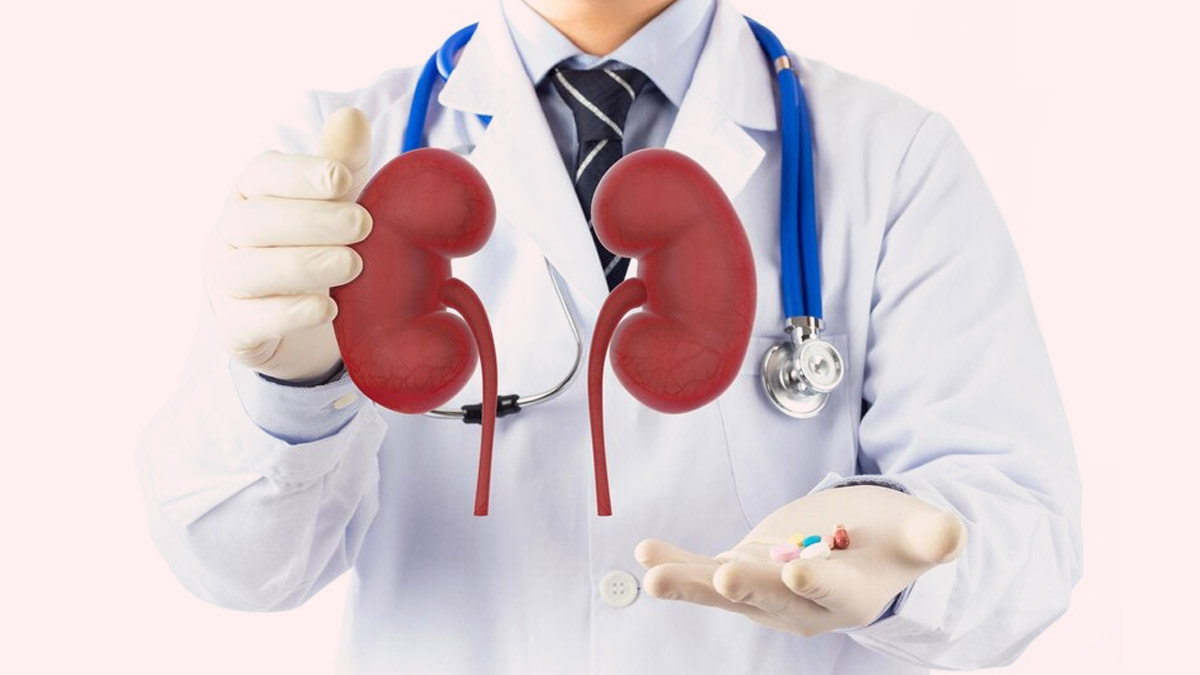
The thought of living with just one kidney seems impossible. But the fact is, globally, an estimated one in 2,000 babies is born each year with kidney agenesis, a condition where newborns have one or no kidneys. Additionally, between one in 1,000 and one in 4,300 babies are born with kidney dysplasia, a condition where the kidneys do not develop properly during pregnancy. Some even go on to develop complications that leave them no choice but to live with a single kidney.
Table of Content:-
The good news is that most people live healthy lives with one kidney, but it takes some effort and proper lifestyle changes.
Also Read: Doctor Speaks: Why Chronic Kidney Disease Is a Neglected Public Health Crisis in India
Common Causes Of Solitary Kidney

In an interaction with the OnlyMyHealth team, Dr Upal Sengupta, Director - Nephrology at Fortis Hospital, Anandapur, defines solitary kidney disease as a medical disorder when an individual only has one kidney instead of two.
According to him, many factors can contribute to the same, some of which are listed below:
- A person may have only had one kidney since birth, which is known as renal agenesis.
- A person is born with two kidneys, but only one of them is functional. This is called kidney dysplasia.
- Removal of one of the kidneys through surgery due to medical reasons such as chronic kidney diseases, cancer, injuries, donor transplants, genetic conditions, or other developmental abnormalities.
- In a solitary functioning kidney, due to some unilateral disease like kidney stone, vescico-ureteral reflux, or unilateral pelvi-ureteric junction obstruction that goes on undetected for a long time, the affected side kidney effectively ceases to function.
The National Institute of Diabetes and Digestive and Kidney Diseases (NIDDKD) suggests that men are more likely than women to be born with a solitary kidney and to receive donated kidneys, whereas women are more likely than men to be living kidney donors.
What To Expect When You’re Living With One Kidney
“One healthy kidney is capable of efficiently removing waste, filtering blood, and controlling electrolytes and fluids,” says Dr Sengupta.
However, there are certain precautions to be taken to ensure a healthy life and overall well-being.
“Individuals with solitary kidney disease should exercise additional caution when it comes to their food, hydration, injury prevention, and other areas,” the doctor shares, highlighting the increased possibilities of developing high blood pressure, protein in the urine (albuminuria), and a gradual decline in kidney function over time (chronic renal disease).
Can People Survive On One Kidney?

The short answer is yes. In fact, Dr Sengupta says, “A person can survive with just one kidney and lead a wholesome life, especially when given the right care and consistent medical supervision.”
He adds that many people with one kidney have normal, healthy lives. This is possible when an individual makes wise lifestyle decisions.
Also Read: Are You Prone To Kidney Stones? Expert Advises To Avoid These Foods
Lifestyle Changes To Follow

In general, a kidney-friendly lifestyle includes drinking plenty of water, eating a healthy diet, and avoiding excessive use of medications like over-the-counter medicines that could damage the kidneys, emphasises Dr Sengupta. Other important changes include:
- Eat a well-balanced diet with reduced consumption of salt and protein to avoid the pressure on the kidneys.
- Regular exercise is necessary to ensure physical activity levels and avoid being overweight.
- Regular medical check-ups, including blood tests, urine tests, and monitoring levels of blood pressure and cholesterol, are crucial for monitoring kidney function and overall health.
- Keeping chronic diseases like diabetes and high blood pressure under control.
Conclusion
Living with just one kidney can affect a person’s quality of life and may also increase the risk of various health problems; however, most people continue to lead a healthy life by leading an active lifestyle. Moreover, if you’re someone living with a solitary kidney, it is crucial to frequently visit your healthcare provider and get yourself examined for any possible health challenges.
Also watch this video
How we keep this article up to date:
We work with experts and keep a close eye on the latest in health and wellness. Whenever there is a new research or helpful information, we update our articles with accurate and useful advice.
Current Version